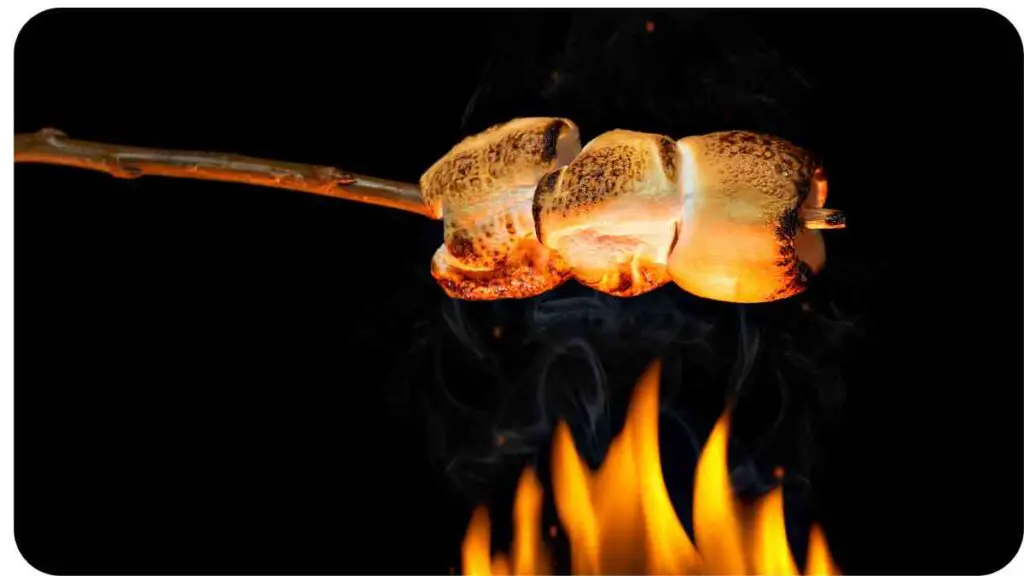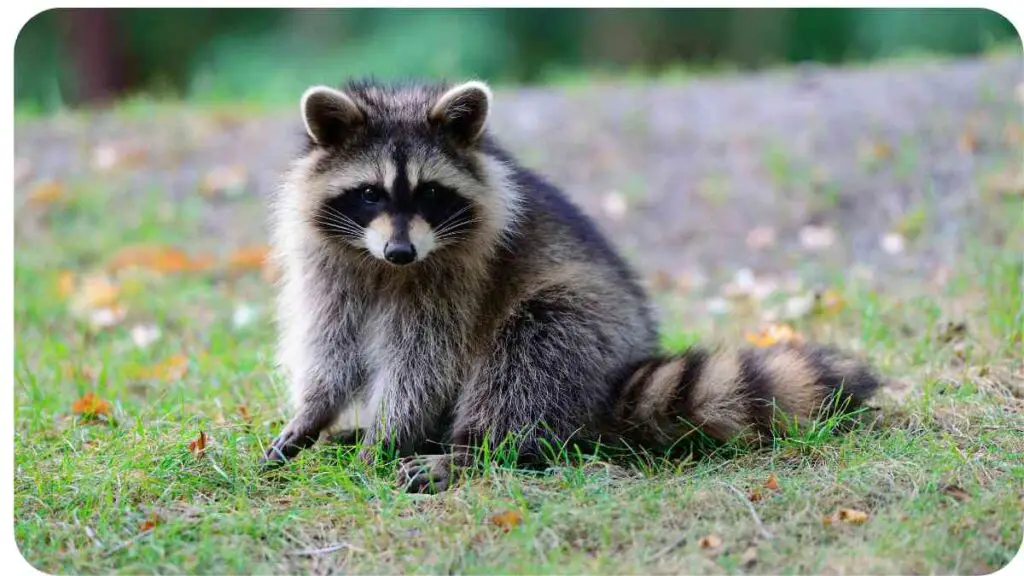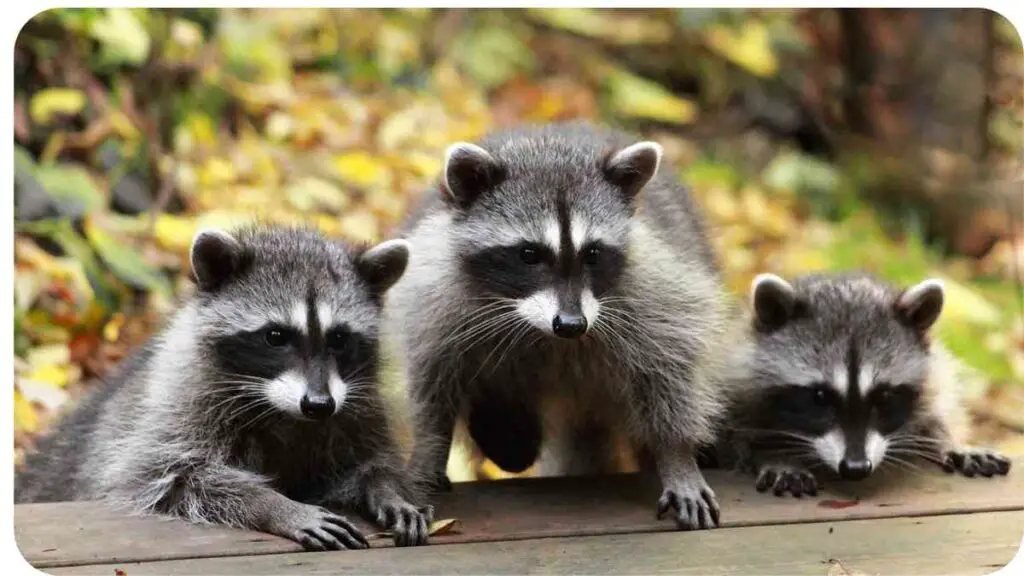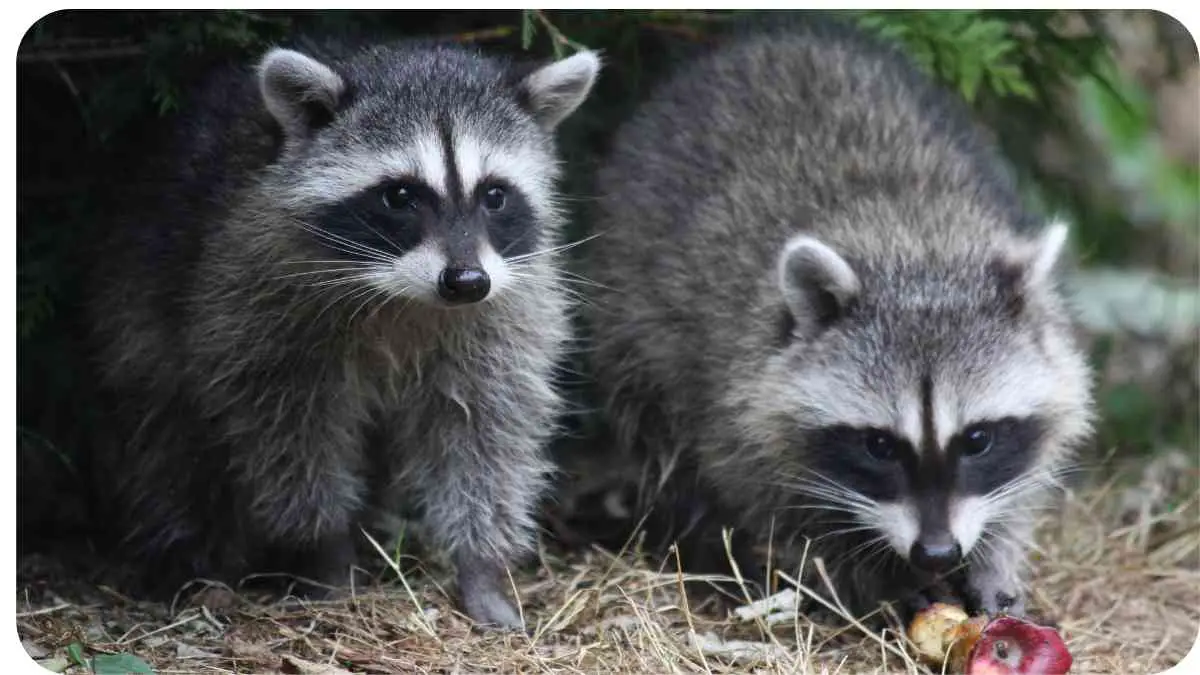Curiosity about raccoons and their peculiar eating habits has led many to question the veracity of their love for marshmallows. In this article, we unravel the mysteries surrounding raccoons’ affinity for these sweet treats.
Beyond the whimsical allure, we delve into the consequences of feeding raccoons marshmallows, exploring the risks, the potential for overindulgence, and offering insights into alternative, more nutritious food choices. Join us on a journey into the raccoon diet, dispelling myths, and understanding the delicate balance between providing a treat and ensuring these mischievous creatures maintain their health and wild instincts.
| Key Takeaways |
|---|
| Marshmallows are a fun treat for raccoons, but there are other nutritious food options to consider. |
| Feeding raccoons the wrong food can be dangerous and lead to health issues. |
| Mothballs are not an effective way to repel raccoons and can be harmful to the environment. |
| There are safe and humane ways to trap and remove raccoons from your property. |
| Educating yourself on raccoon behavior and proper trapping techniques can help you deal with raccoon problems effectively. |
The Marshmallow Dilemma

Indeed, raccoons adore marshmallows due to their omnivorous nature. However, a cautionary note surfaces: overindulging in these sugary treats can lead to sickness or even prove fatal for these creatures. Discover the fine line between a delightful treat and potential harm, emphasizing the importance of moderation in feeding practices.
Raccoons and Marshmallows
While the allure of marshmallows for raccoons is real, do they truly need them? Uncover the reality that raccoons can thrive on their natural diet without the need for human treats.
Navigate the delicate balance of providing care for stray or injured raccoons without resorting to potentially harmful feeding practices. Learn the nuances of responsible wildlife interaction, emphasizing compassion without compromising their well-being.
“If you encounter raccoons during the day, it’s important to remember that they are still wild animals and can be dangerous. Learn more about how to stay safe by reading our article on are raccoons dangerous during the day, which provides valuable information on how to handle raccoon encounters safely.”
What Happens If You Give A Raccoon A Marshmallow?
Delve into the intriguing world of raccoons’ dietary choices, exploring the seemingly odd yet surprisingly sensible preference for marshmallows. Uncover the rationale behind their appetite, likening marshmallows to super-sized versions of their natural delicacies small insects and plants.
Acknowledge the undeniable love raccoons have for marshmallows and understand the potential consequences of overindulgence, shedding light on the limits of their voracious appetite.
Understanding Raccoons’ Dietary Limits

While pinpointing an exact number remains elusive, insights from various sources suggest raccoons can consume up to half their body weight daily.
Analogous to a human consuming an astonishing 2112 marshmallows per week, the article explores the potential risks associated with such voracious marshmallow consumption. Unravel the mysteries of raccoons’ capacity to indulge and the delicate balance between treat and threat in their diet.
“If you’re looking for alternative food options for raccoons, consider bananas! Our article on are bananas good for raccoons explains the nutritional benefits of bananas for raccoons and how to safely feed them.”
Understanding Raccoons’ Tolerance for Marshmallows
Dive into the eclectic diet of raccoons, exploring their voracious appetite for a myriad of foods, including plants, insects, and even human garbage. Uncover the consequences of overindulgence as raccoons navigate their culinary adventures, shedding light on the adverse effects of excessive marshmallow consumption.
Delve into the delicate balance between their insatiable cravings and the repercussions of dietary extremes, emphasizing the importance of moderation for raccoons’ well-being.
The Consequences of Overindulging Raccoons in Marshmallows
Explore the repercussions of excessively treating raccoons to marshmallows, delving into the delicate balance of their omnivorous diet. Despite lacking a human-like sweet tooth, raccoons can succumb to sickness when exposed to surplus sugar.
Uncover the potential risks of overfeeding, providing insights into the approximate quantity around 500 marshmallows that could adversely affect a healthy adult raccoon. Emphasize the variability among individual animals, highlighting the importance of responsible feeding practices for these curious and adaptable creatures.
“While marshmallows may be a fun treat for raccoons, there are other food options to consider, such as hot dogs. Learn more about what to feed raccoons by reading our article on are hot dogs good for raccoons, which provides valuable information on safe and nutritious food options for raccoons.”
Understanding the Risks for Raccoons

Acknowledge the potential dangers of overindulging raccoons in marshmallows, highlighting that, while less sensitive to sugar than humans, they can still fall victim to adverse effects. Explore the possibility of sugar-induced sickness, emphasizing the risk of overdose leading to serious health issues, including diabetes and even death.
Unveil the importance of responsible feeding practices, recognizing that, despite their resilience, raccoons are not immune to the consequences of excessive sweet treats.
The Limits for Raccoon Treats
Recognize the potential dangers of overindulging a raccoon in marshmallows, understanding that there is indeed a limit. Emphasize the serious consequences, including sickness and even death, that can result from excessive treat consumption.
Dispel any notion of an easy remedy, highlighting the gravity of the situation and the impracticality of intervening directly with a potentially distressed raccoon. Stress the importance of responsible feeding practices to ensure the well-being and health of these animals.
“While marshmallows may be a fun treat for raccoons, there are other food options to consider, such as hot dogs. Learn more about what to feed raccoons by reading our article on are hot dogs good for raccoons, which provides valuable information on safe and nutritious food options for raccoons.”
Understanding the Risks for Raccoons
Delve into the potential consequences of incorporating marshmallows into raccoons’ diets, contrasting these sugary treats with their natural food sources. Acknowledge the diverse array of foods raccoons typically consume and the absence of marshmallows in their natural diet.
Highlight the risks of overindulgence, including sickness and dehydration, underscoring the importance of monitoring raccoons’ behavior post-feeding. Encourage prompt veterinary intervention if any unusual behavior arises, emphasizing the critical role of responsible care in safeguarding raccoons’ health and well-being.
Understanding Raccoons’ Dietary Dynamics
Explore the multifaceted nature of raccoons’ diet, emphasizing their omnivorous tendencies and opportunistic feeding behavior. Unravel the intriguing dynamics of raccoons’ dietary preferences, highlighting the unexpected appeal of marshmallows as a carbohydrate-rich source for energy and cognitive function.
Acknowledge the nutritional benefits marshmallows can offer raccoons, particularly in supporting growth and development, underscoring the versatility of their diet. Reflect on the practical implications of managing raccoons’ access to food sources while maintaining a harmonious coexistence with these resourceful creatures.
“Feeding raccoons the wrong food can be dangerous, especially when it comes to bones. Learn more about the risks of feeding chicken bones to raccoons by reading our article on are chicken bones bad for raccoons, which provides valuable information on safe and nutritious food options for raccoons.”
Handling Raccoon Treat Incidents
In the event of a raccoon indulging in a marshmallow, accept that there is no specific antidote. Patience becomes key as you await the creature’s completion of the treat, allowing it to depart peacefully. For those eager to assist, consider distraction tactics with alternative foods, ensuring they are suitable and won’t upset the raccoon’s stomach.
Caution is crucial when attempting to remove the marshmallow, emphasizing the importance of avoiding direct contact with the raccoon’s mouth to ensure both your safety and the creature’s well-being.
Guiding Your Raccoon Pal Away from Marshmallow Temptation
If you find yourself in a marshmallow predicament with your raccoon friend, consider these strategies:
- Offer Irresistible Alternatives: Present more enticing food options that captivate your raccoon’s senses. Placing appealing treats within reach might successfully divert its attention from the marshmallow.
- Toy Distraction: Utilize raccoons’ curious nature by introducing a captivating toy or game. Raccoons often succumb to their playful instincts, making a toy an effective distraction from the sweet temptation.
- Safely Encourage Movement: If your raccoon friend has taken refuge in an inconvenient spot, gently guide it down from elevated areas. Prioritize its safety to prevent any mishaps while exploring alternative distractions.
Dispelling the Myth of Raccoon Overdose
Contrary to popular belief, there’s no concept of a marshmallow overdose for raccoons. While it’s possible to offer them too many, the likelihood of causing harm is low. Raccoons, being discerning eaters, may refuse excessive treats, showcasing a natural instinct for self-regulation.
Opt for responsible feeding practices by diversifying their diet with safe alternatives like apples, bananas, or peanut butter sandwiches without nuts. Emphasize the importance of moderation, ensuring a balanced and nutritious approach to treat offerings for the well-being of your raccoon companion.
Conclusion
In conclusion, while raccoons showcase remarkable resilience, the limits of their dietary indulgences should be approached with caution. Marshmallows, despite not being the worst treat, harbor risks, especially when it comes to human-centric offerings. Although raccoons may relish these treats initially, the long-term consequences, such as potential sickness or even death from excessive sugar intake, underscore the need for responsible feeding practices.
In the spirit of wildlife coexistence, it’s paramount to prioritize the well-being of these furry friends. Keep them wild, embracing their natural instincts, and ensure a harmonious balance between human interaction and the preservation of raccoons’ health and wild nature.
Further reading
Here are some additional resources that may be helpful for those interested in learning more about trapping and baiting raccoons:
Best Raccoon Bait for Traps: What to Use to Trap Raccoons: This article provides valuable information on the best baits to use when trapping raccoons, including tips on how to make your own bait.
What is the Best Bait to Trap a Raccoon?: This blog post provides helpful tips on the best bait to use when trapping raccoons, including specific types of food that are most effective.
Get Rid of Raccoon Bait: This article discusses different methods for getting rid of raccoon bait, including using humane traps and natural deterrents.
FAQs
What is raccoon bait?
Raccoon bait is food or other attractants used to lure raccoons into traps for relocation or removal.
What is the best bait for trapping raccoons?
Some of the best baits for trapping raccoons include cat food, marshmallows, and honey.
How do you make your own raccoon bait?
You can make your own raccoon bait by mixing peanut butter, honey, and bread crumbs together or by using cat food, sardines, or other foods that raccoons find appealing.
How do you use bait to trap raccoons?
To trap raccoons using bait, place the bait inside the trap and set it in an area where raccoons are known to frequent. Check the trap regularly and release or relocate any trapped raccoons as soon as possible.
Are there any humane ways to trap and remove raccoons?
Yes, there are humane traps available that allow for the safe capture and relocation of raccoons. It’s important to follow all local laws and regulations regarding the trapping and removal of wildlife.

I am Hellen James, a landscape architect. For many years I have written about landscaping for various publications; however, recently decided to focus my writing on personal experience as a profession.


